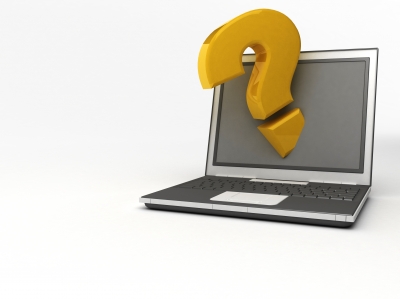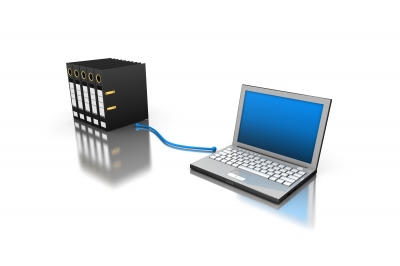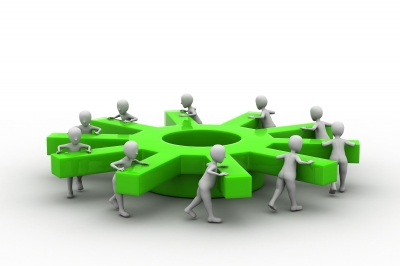Are We Witnessing PC Extinction or Is It Just PC Tech Evolution?
Sony has just sold its VAIO segment, effectively leaving the PC business. The company justified the decision as the fitting response to the situation of the PC market. Fewer people are interested to buy desktop and laptop PCs. The numbers are even dwindling.
Obviously, desktop and laptop computers have become less appealing to buyers of consumer electronics. Tablets and smartphones have been taking over. Many are wondering if there will come a time when we no longer see laptop or desktop computers. Is PC extinction happening soon?
To answer this question, it helps examining the definition of what a PC or personal computer is. It will also be good to compare the features and functions of PCs and the currently popular tablets and smartphones.
What is a PC
According to the American Heritage Science Dictionary, a PC or personal computer is a “computer built around a microprocessor for use by an individual. Personal computers have their own operating systems, software, and peripherals, and can generally be linked to networks.”
Hence, a PC is a computing device that has a microprocessor, run by an operating system, capable of supporting third party software and peripherals, and has the ability to link to networks (connecting to LAN, WAN, VLAN, or directly to the Internet). It is designed to be a general purpose device with a size meant for a single person’s use, as opposed to mainframe systems intended for multi-person use.
Features and Functions of a PC
A PC provides a variety of functions that include the following:
-
Word processing
-
Spreadsheet or worksheet processing
-
Calculations
-
Web browsing
-
Internet-based or network-based communication
-
Digital media playback
-
Gaming
-
Graphic editing, manipulation, or creation
-
Audio and video Editing
-
Other functions specific to a software installed to the computer
Types of Personal Computers
There are two major types of personal computers: stationary and portable. Stationary computers are the desktops and workstations in offices and Internet cafes. Portable ones are the laptops, netbooks, tablets, as well as the almost nonexistent ultra-mobile PCs and pocket PCs.
By carefully examining these details, it should not be difficult to see how PCs are not really becoming extinct but are simply evolving. Technically speaking, there can’t be a post-PC era, at least not within the next few decades. After all, tablets belong to the personal computer or PC category. Desktop computers may become a rarity but their presence is furthered by their more compact and more portable versions. If you think of it, what is happening is that smartphones or smaller devices that used to do fewer functions have just evolved to do the things that the PCs have been doing. Or if we look at it in another way, what is happening is that computers have just been re-engineered to fit in slimmer, smaller cases.
Evolution not Extinction
Consider the case of tablets, those running the Windows 8 operating system in particular. They bear an operating system that is also used on desktop and laptop computers (the most prominent faces of the term “PC”). Taking the old school definition of personal computers into account, these tablets are basically just miniaturized personal computers. They are intended for personal use, providing just the right amount of feature and power to handle tasks a personal user would be needing. Consider this: you can even get an Android TV box—a device you can think of as a tablet without a display—connect it to a TV, attach a mouse and keyboard and you’ll get a setup similar to a desktop computer.
The features and functions of PCs and tablets are almost identical. The world may have not seen an Android desktop computer yet but there is already a dual-booting laptop-notebook hybrid that can run both the Android and Windows operating systems.
Thanks to the emergence and apparent dominance (think Android and plug n play) of open source platforms, software and hardware compatibility has not been significantly hindered by the competition of different computer manufacturers. Innovation has paved the way for more designs, shapes, forms, and sizes of computers.
Convergence of Functions and Features
The devices we believe to be competing against each other are actually very similar. They only differ in their form factor, design, and the manner by which they are used. A desktop or laptop PC can do everything a tablet can do, with a bigger display and more powerful processors at that. The same is true with the PC to smartphone comparison. Who says desktop or laptop computers nowadays can’t do calls? There are many peripherals that can be used to enable mobile network communication or provide other functions to a computer. It is even possible to remote control a computer using a smartphone and vice versa.
Summing it all up, we are not really saying goodbye to the PC. PC extinction is unlikely. We are just saying hello to the new form of personal computing. If you have been saddened by the news of Sony’s exit from the PC market, be appeased to know that Sony still has its dependable smartphones and tablets – this era’s preferred devices of personal computing.


